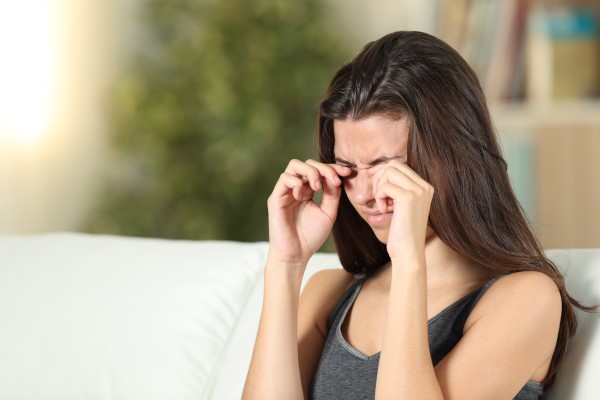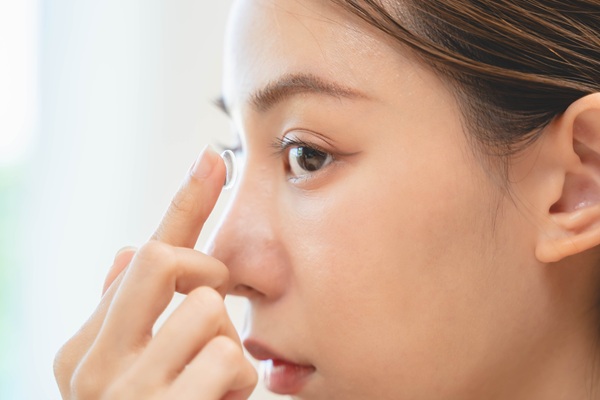Itchy Eye Treatment

While there are several factors that can cause temporary itchy eyes, certain conditions can cause the eyes to itch more frequently. While store-bought options can provide temporary relief, professional treatment can lead to a long-term solution. Itchy eye treatment can bring fast relief for symptoms while also helping to identify the cause of the irritation in the patient's eyes.
Itchy eye treatment is offered at Texas Optical in Dallas and the surrounding area. Since the base of the eyelid is prone to irritation, this condition is more common than many people realize.
Why you might need itchy eye treatment
Several factors in one's health and environment can cause itching in the eyes, or ocular pruritus. Possible causes can include the following.
1. Allergies
Allergies are the most common cause of itchy eyes. An allergen that irritates the person's eyes, like animal dander or pollen, leads to the release of histamines. These can lead to irritation, swelling, and redness of the person's eyes/eyelids.
Eye allergies can be perennial or seasonal. The latter is also known as allergic conjunctivitis and typically occurs during the fall and spring months. It is caused by high pollen counts. Perennial allergies can affect a person all year long and are often the result of allergens like dust and mold. Products like lotion, contact lens solution, or makeup can also introduce allergens to the patient's eyes.
2. Dry eye syndrome
A person might also require itchy eye treatment due to Meibomian gland dysfunction, commonly known as dry eye syndrome. The person's tear ducts fail to produce enough tears to properly moisturize their eyes. Thus, the eyes are dryer than they should be. This usually leads to redness and itchy eyes.
3. Eye disease or infection
An eye infection like red eyes can also lead to itchy eyes. The main cause of an infection is coming into contact with bacteria or viruses. Treating the underlying issue often relieves the irritation and any other symptoms associated with eye disease.
Diagnosing eye allergies
The doctor will talk to the patient about their symptoms and how long their eyes have been experiencing the irritation. They will also go over the patient's medical and family history. Based on the findings, they might decide to perform other tests and examinations until they can make an accurate diagnosis.
Treatment options for itchy eyes include:
- Using artificial tears to lubricate the eyes and prevent dryness
- Using a clean, damp, cold cloth to soothe the eyes
- Using prescription eye drops or oral medication to prevent further issues
The condition typically goes away after the underlying issue is addressed. Medications commonly prescribed to deal with itchy eyes include antihistamines, decongestants, allergy shots, and antibiotics.
Home remedies for itchy eyes
Many patients are looking for relief from itchy eyes. Let us take a look at a few simple things that they can do to alleviate the discomfort before their appointment with the eye doctor:
- If allergies are causing a person's itchy eyes, avoiding places with allergens can help prevent and reduce the intensity of itchy eyes; for example, windows can be closed to prevent pollen from getting into the home, and eyewear can be used to protect the eyes
- If itchy eyes are being caused by mold, a dehumidifier can be used to control mold in the home
- Taking a shower before going to bed removes irritants and allergens that have accumulated on the body, face, and eyelids all day
- Applying a cold compress to the eyes can help reduce the discomfort caused by itchy eyes
- Artificial tears can be used to lubricate the eyes and reduce discomfort
- Over-the-counter oral medications and anti-allergy medication can be used to ease the symptoms of dry eyes; look for products that contain mast cell stabilizers or antihistamines
- Sublingual immunotherapy is a practice that involves using allergy eyedrops over time; this exposes the patient to allergens that they are sensitive to, building up their tolerance to it over time
An eye doctor might also recommend one or more of the remedies listed here, especially if allergies are determined to be the cause of a patient's itchy eyes. Other treatments might also be recommended based on the optometrist's findings. Conditions like dry eyes and Blepharitis require specific treatment plans to address them.
Get treatment for itchy eyes
Rubbing your eyes when you have itchy eyes may only make things worse. It can lead to the release of more histamines, which can then lead to more irritation and inflammation. If you know what triggers your allergies, try avoiding them.
If the itching seems to persist, call us at (214) 771-7333 and schedule an appointment. We can find a treatment that will specifically address the cause of the irritation.
Request an appointment here: https://www.texasoptical.net or call Texas Optical at (214) 771-7333 for an appointment in our Dallas office.
Check out what others are saying about our services on Yelp: Read our Yelp reviews.
Recent Posts
For those living with diabetes, undergoing a diabetic eye exam is one of the most important steps in protecting their vision and overall eye health. High blood sugar levels can lead to a range of complications, including conditions that damage the eyes over time. These exams help detect these issues before they become serious, allowing…
Contact lenses provide clear vision and convenience for individuals who prefer an alternative to eyeglasses. However, proper care and maintenance are essential to prevent infections, irritation, and eye damage. Neglecting hygiene practices can lead to serious eye conditions, including corneal ulcers and keratitis. Understanding how to clean, store, and handle contact lenses ensures long-term eye…
Maintaining eye health and preventing long-term issues is the result of consistent and quality vision care. Many people focus on overall wellness but may overlook daily habits that support healthy eyesight. However, taking simple steps each day can protect vision, reduce eye strain, and prevent future complications. By making eye health a priority, it is…
Prescription contacts provide vision correction, comfort, and convenience for those who do not want to wear glasses. However, caring for and wearing contacts takes some getting used to. Learning to insert, remove, and maintain them will help ensure a comfortable and safe experience.Not all contact lenses are the same, and choosing the right pair is…


